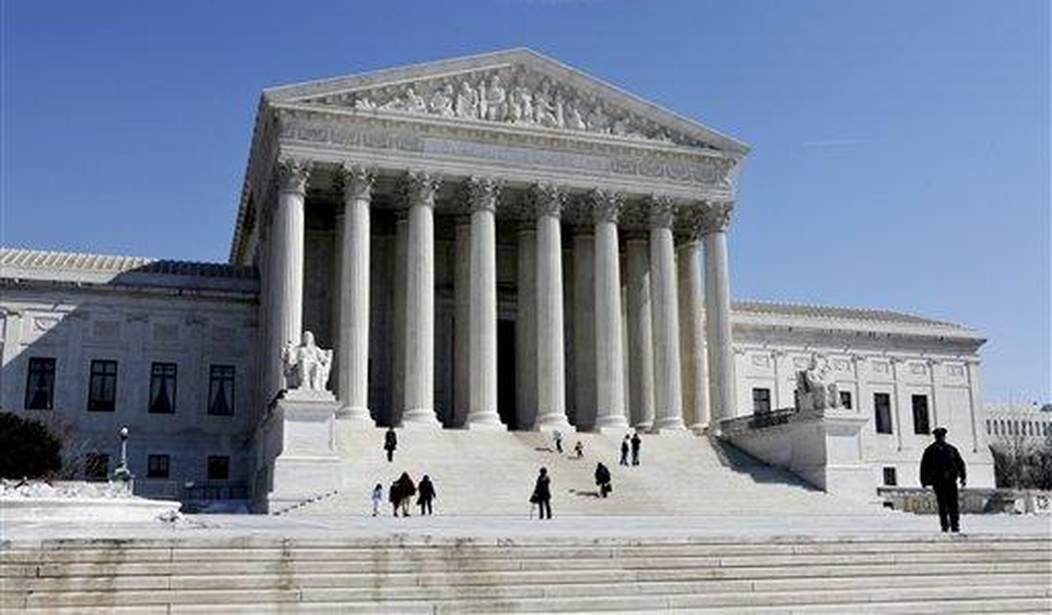In a 6-3 decision released on Tuesday, the United States Supreme Court has rejected the idea that a state legislature cannot be overruled by the courts when it comes to election law.
The “independent legislature theory” that had been pushed by the North Carolina legislature argued that the legislature does not have “nearly unfettered authority to regulate federal elections, without interference from state courts.” The Court’s opinion, authored by Chief Justice John Roberts, states that “A state legislature may not ‘create congressional districts independently of’ requirements imposed ‘by the state constitution with respect to the enactment of laws.'”
Third (and *last*) ruling is Moore v. Harper.
For a 6-3 majority (Thomas, Alito, and Gorsuch dissenting), Chief Justice Roberts reaches the merits and *rejects* the "independent state legislature" theory:https://t.co/EfbSKSwBm7
— Steve Vladeck (@steve_vladeck) June 27, 2023
At the heart of the issue were GOP-drawn congressional maps that had been challenged by Democrats and tossed out by a then-Democratic majority North Carolina Supreme Court. The state’s Republicans challenged the court’s ruling, appealing to the high court.
North Carolina Republicans argued that the elections clause of the Constitution granted them autonomy in setting election law, leaving no room for outside forces (like the court system) to overrule them.
The case centered on the “independent state legislature” theory, which holds that state legislators have the power under the U.S. Constitution to regulate state elections with little to no interference from state courts. The theory is based on the Elections Clause of the Constitution, which says that “the Times, Places and Manner of holding Elections for Senators and Representatives, shall be prescribed in each State by the Legislature thereof.” It is also based on the Electors Clause of the Constitution.
In this case, the state of North Carolina was sued over a congressional map drawn in 2021 by the legislature, which likely would have given Republicans ten of the state’s 14 congressional seats. The challengers asserted the map was an extreme partisan gerrymander and claimed it violated the state’s constitution. In February of last year, the North Carolina Supreme Court agreed with the challengers by a vote of 4-3, striking down the map for last year’s midterm elections and adopting a new map drawn by three court-appointed experts.
Complicating the matter was the fact that the state’s Supreme Court flipped after the 2022 midterms, with the subsequent GOP majority ruling that they did not have oversight in the matter. The 4-3 Democrat-leaning court turned into a 5-2 Republican-leaning court.
“There is no judicially manageable standard by which to adjudicate partisan gerrymandering claims. Courts are not intended to meddle in policy matters,” wrote Chief Justice Paul Newby for the five-justice majority. “In its decision today, the Court returns to its tradition of honoring the constitutional roles assigned to each branch.”
However, the Tuesday opinion from the nation’s high court stated that the state courts did have that power and rejected the assertions of the state legislature.
Chief in Moore v. Harper: State courts may not transgress the ordinary bounds of judicial review such that they arrogate to themselves the power vested in state legislatures
to regulate federal elections. (Whatever that means.)— Ed Whelan (@EdWhelanEPPC) June 27, 2023
This is a developing story, and RedState working to provide complete coverage of news and updates that matter to conservatives. Updates will be shared as they become available.














Join the conversation as a VIP Member